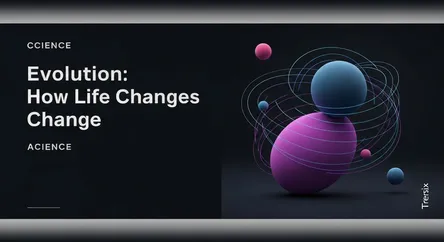Science
Evolution: How Life Changes

Explore the theory of evolution, the process of natural selection, and how life on Earth adapts, diversifies, and changes over generations.
What is it?
Evolution is the fundamental scientific theory explaining how life on Earth has diversified over millions of years. It is the process of change in the heritable characteristics of biological populations over successive generations. The primary engine of this change is natural selection, a concept famously articulated by Charles Darwin. Organisms with traits better suited to their environment tend to survive, reproduce, and pass those advantageous traits to their offspring. Other key mechanisms include genetic mutation, which creates new traits, and genetic drift, which involves random changes in the frequency of traits within a population.
Why is it trending?
Evolution consistently remains a relevant and debated topic. New fossil discoveries continue to fill in the gaps of our planet's history, while advances in genetics and DNA sequencing provide powerful new tools for tracing ancestral lines. The theory is also central to addressing modern crises, such as understanding the rapid evolution of viruses like COVID-19 or combating the rise of antibiotic-resistant superbacteria. Ongoing discussions about climate change and its impact on species survival also highlight the critical importance of understanding evolutionary processes.
How does it affect people?
Evolutionary principles directly impact human well-being and society. In medicine, understanding evolution is crucial for developing effective vaccines and treatments for diseases. In agriculture, it guides the breeding of more resilient and productive crops to feed a growing global population. It also informs conservation biology, helping scientists protect endangered species and maintain biodiversity. Beyond practical applications, the theory of evolution provides a profound scientific framework for understanding our own origins, our connection to all other living things, and our place in the natural world.